About BILT: Our approach | Themes | Who we are
Get involved: News and events | BILT community | Expert group | Self-Reflection Tool
Knowledge base: Innovative and promising practices | Atlas of emerging trends | BILT library | TVETipedia

This Learning Lab was held on 12 October 2022 from 10:00 – 11:30 CEST. It focused on the H2Skills project, which looks at training needs in the hydrogen economy within the lower Saxony region of Germany.
H2Skills: training needs in the hydrogen economy
Preparing for the future and understanding the needs of the hydrogen economy is challenging. An existing nationwide skills gap and a lack of sector specific training only complexifies the task. This is where the H2Skills project comes in.
H2Skills: training needs in the hydrogen economy focuses on how to find and fill local skills gaps in the northern German hydrogen economy. The project was launched in 2021 and is run jointly by the Lüneburg-Wolfsburg Chamber of Industry and Commerce (IWK) and the Braunschweig-Lüneburg-Stade Chamber of Crafts (HWK) with funding from the European Social Fund (ESF).
The project has been data driven since its inception. Seeking to best identify actual market needs, data was gathered through expert interviews as well as the use of an online survey. For the complete picture, all companies working in the northeastern part of Lower Saxony were asked to participate.
Based on the analysis, targeted curriculum was developed that tapped into the real needs expressed by the local industries. Starting in October 2022, a line of courses, certifications, and training modules are being rolled out.
As a result of the groundwork that has been laid by the H2Skills project, the path forward to a robust hydrogen economy in Germany is becoming clearer.
Times are indicated in CEST. German-English Interpretation will be available.
12 October 2022
10:00 – 10:10:  Opening and Welcome to the BILT Learning Lab Series
Opening and Welcome to the BILT Learning Lab Series
 Elevator Pitch
Elevator Pitch
Introducing the H2Skills project
In cooperation with its strong partners and networks, how is the H2Skills project working to uncover the hydrogen skills shortage in Germany and what challenges have arisen around implementing new training programmes which meet those needs?
Moderator: Ms Cara Schmidt, BIBB
Panellists:
11:25 – 11:30  Closing
Closing
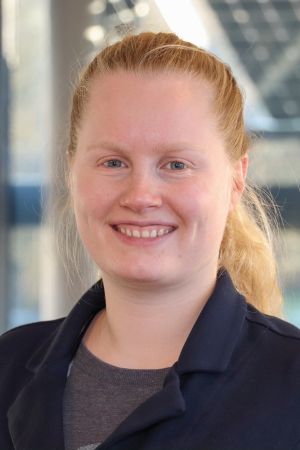
Ms Johanna Braun, Project Manager H2Skills, Chamber of Crafts (HWK) Braunschweig-Lüneburg-Stade
Ms Braun is in charge of the pedagogical components of the H2Skills project. Holding a Bachelor's degree in civil engineering and a Master’s degree in energy system technology, she brings a strong technical background to the project. She began working at HWK Braunschweig-Luneburg-Stade in 2021. Through her position, she maintains contact with trainees, teachers and staff in technical training, such as motor mechanics and system mechanics.
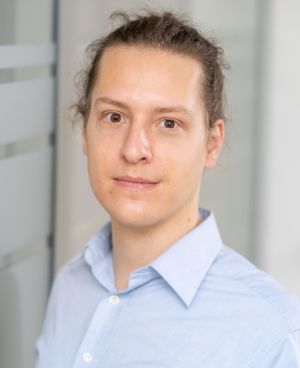 Mr Christoph Lenz, Project Manager H2Skills, Chamber of Industry and Commerce (IWK) Lüneburg-Wolfsburg
Mr Christoph Lenz, Project Manager H2Skills, Chamber of Industry and Commerce (IWK) Lüneburg-Wolfsburg
Mr Lenz is the H2Skills Project Leader at IWK Lüneburg-Wolfsburg. With a background in philosophy and economics, as well as a Master’s degree in sustainability sciences, he aspires to make education on hydrogen technologies a success story. He is dedicated to highlighting the importance of skilled workers as a key ingredient to ensuring a successful market launch of hydrogen.
 Mr Daniel Kipp, Project Manager, Hydrogen Network of North-East Lower Saxony (H2.N.O.N.)
Mr Daniel Kipp, Project Manager, Hydrogen Network of North-East Lower Saxony (H2.N.O.N.)
Mr Kipp is the Project Manager of the hydrogen network H2.N.O.N in Northeast Lower Saxony, which currently has 115 members. The network is dually financed by the 11 regional districts and the joint taskforce for the improvement of the regional economic structure (GRW) with federal and state funds. The aim is to accompany and promote the local and regional market ramp-up of the hydrogen economy. Therefore, nuclei for hydrogen projects are developed with local partners into concrete investment projects. Daniel Kipp is dedicated to providing onsite advice, initiating projects and getting funding for the region: "We want to be drivers and caretakers!"
Mr Kipp studied economic geography at the University of Osnabruck. His Doctoral Degree work focused on regional innovation support strategies for small and medium-sized enterprises (SMEs). Professionally he has over ten years working experience as a consultant for MCON Dieter Meyer Consulting GmbH in Oldenburg / Germany. His work interests focus on helping public institutions to implement economic development processes, to improve policy instruments and to discover funding opportunities.
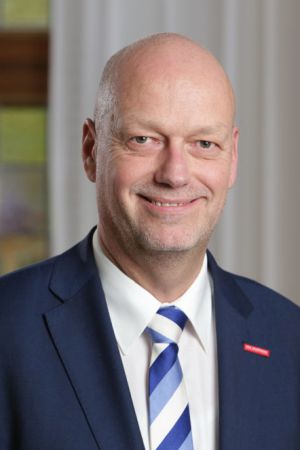 Mr Frank Ahlborn, Staff Department Head on Economic Policy and Regional Management, Chamber of Crafts (HWK) Braunschweig-Lüneburg-Stade
Mr Frank Ahlborn, Staff Department Head on Economic Policy and Regional Management, Chamber of Crafts (HWK) Braunschweig-Lüneburg-Stade
As a trained economist, Mr Ahlborn is active in both regional management and economic policy development. Moreover, he is part of the regional skilled personnel alliance. Mr Ahlborn believes that the lack of professionals in non-academic careers stems from a decline in apprenticeship numbers that are linked to demographic factors and a trend towards higher school qualifications and academization. At the same time, the demands on technical staff are increasing due to the rise in complexity of their tasks. Needs-specific training is therefore required for the increased implementation of hydrogen. The HWK makes an important contribution to the H2Skills project through their political and business connections.
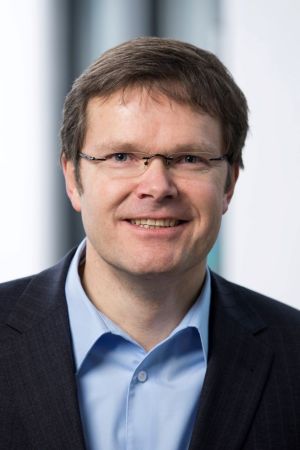 Mr Sönke Feldhusen, Deputy Chief Executive Officer, Department Head of "Educating People - Menschen bilden", Chamber of Industry and Commerce (IWK) Lüneburg-Wolfsburg
Mr Sönke Feldhusen, Deputy Chief Executive Officer, Department Head of "Educating People - Menschen bilden", Chamber of Industry and Commerce (IWK) Lüneburg-Wolfsburg
Mr Feldhusen has vast experience in business development and political consulting, which he applies to his work at IWK. For example, he is involved with developing qualified personnel, basic and advanced training, digitalization and labour market policy. He is committed to the understanding that the development of regional value chains of a hydrogen economy will only work with well-qualified personnel. The H2Skills project is intended to support the development of those relevant specialists.
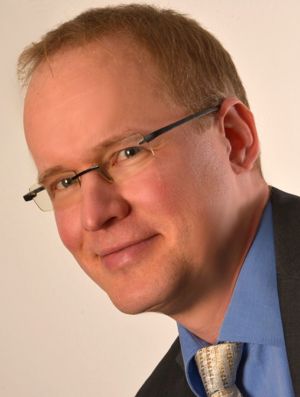 Mr Lars Hartwig, General Manager, Advanced Training Technologies
Mr Lars Hartwig, General Manager, Advanced Training Technologies
Within his position at Advance Training Technologies, Mr Hartwig is developing customized training programmes for the hydrogen economy, as well as other subject matters. He works to creatively combine different learning formats, such as e-Learning, in-presence training, and video courses. He finished his own training in 1999 with a degree in economics and has been active in adult education ever since. He describes lifelong learning and continuous technical qualification as the centre of his professional interest. After ten years working in Asia, mainly teaching at South Korean Universities, he later spent a decade involved with technical in-company qualifications, designing and ensuring training on a comparable level worldwide, and establishing and keeping quality standards in internal training on an international scale.
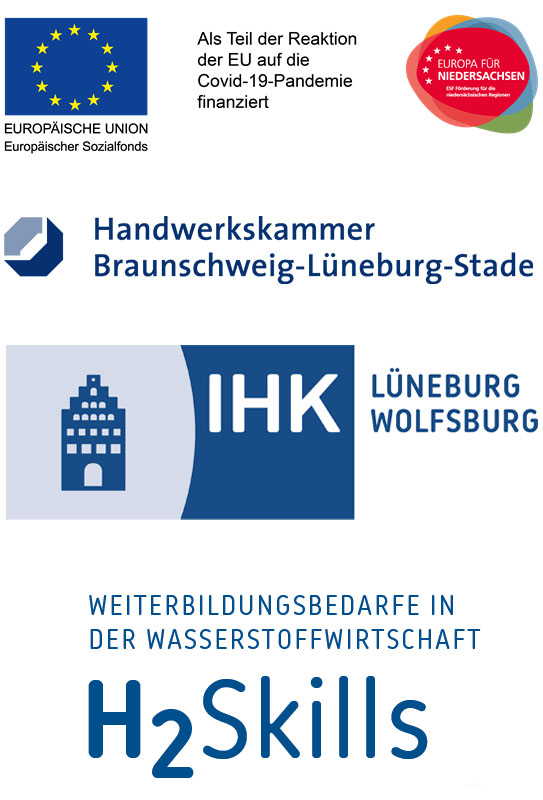
The BILT project is implemented by
with support of
and sponsored by